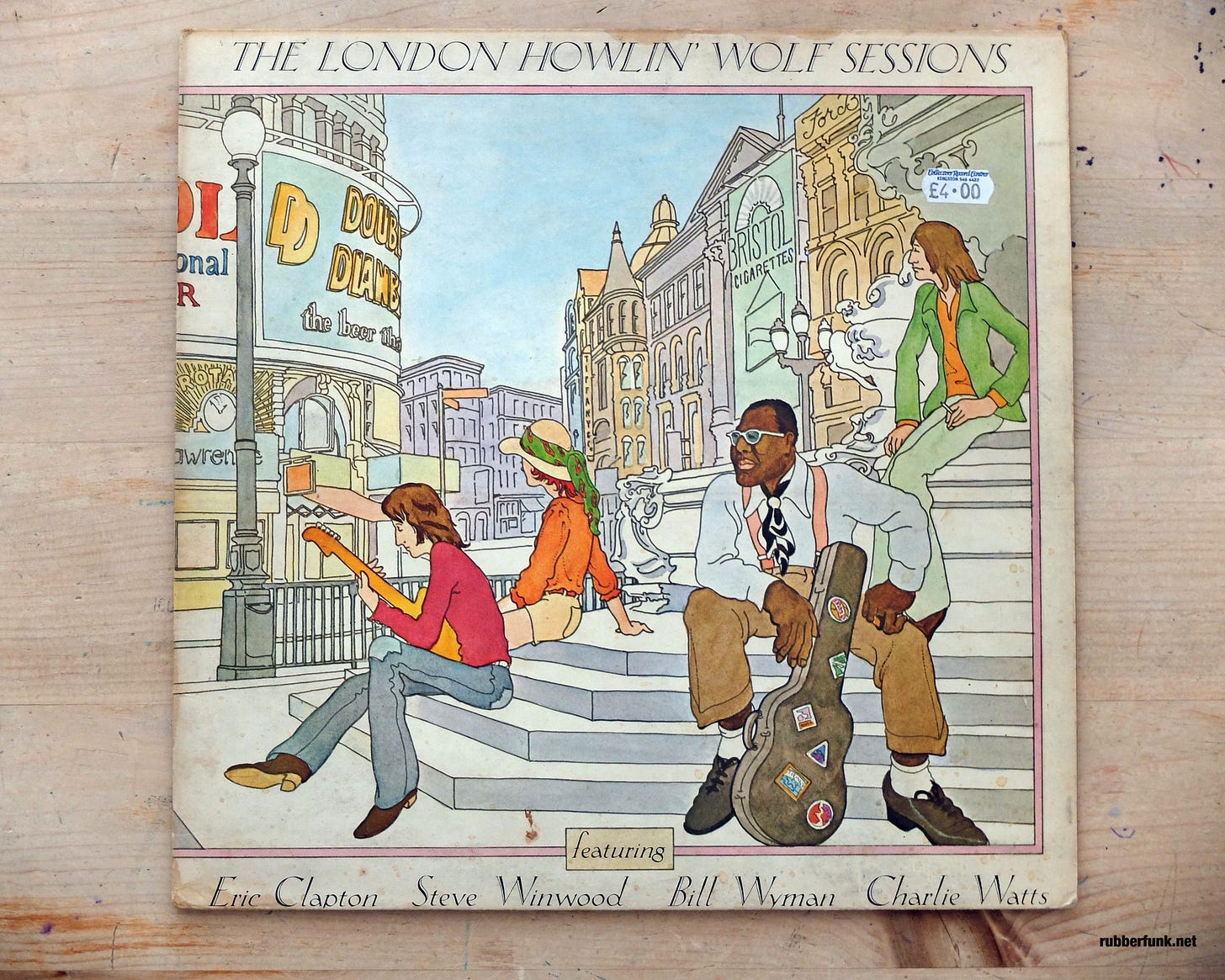From The Collection Part 8 - Howlin’ Wolf featuring Eric Clapton, Steve Winwood, Bill Wyman & Charlie Watts - ‘The London Howlin' Wolf Sessions'
The joy of other people's record collections.
In my mid teens, having bought an old drum kit and immediately formed a band, I developed something of a mid-sixties blues addiction and devoured recordings of that period wherever I could find them. My parents record collection had a few interesting finds of this nature amongst the Beatles and Jose Feliciano (both equally awesome, obviously) - ‘The World Of Blues Power’ compilation on Decca a particular highlight.
Another solid source at this time was the small but perfectly formed vinyl collection of a family I used to babysit for in a little village in rural Kent. With only 4 TV channels for entertainment in those days, I’d cleared access to the record collection with them, and, armed with a stack of D90 cassettes, I spent many evenings listening to everything from Freddie King to Carole King, Stanley Clarke to MJQ, and this - The London Howlin’ Wolf Sessions.
Recorded in April 1970 at Olympic Studios in Barnes (down the road from where I studied at Roehampton in the 90s - I once spent the afternoon hanging around outside Olympic hoping to see Prince when he was rumoured to be recording there) the album sees Wolf joined by a veritable ‘Who’s Who’ of the late 60s UK blues / R&B scene. Charlie Watts and Bill Wyman make up the rhythm section, alongside session stars like Phil Upchurch and Beatles chum Klaus Voorman. Ringo himself makes an appearance on drums for ‘I Ain’t Superstitious’, although I didn’t work this out until years later - he’s only credited on the sleeve as ‘Ritchie’. Eric Clapton and Steve Winwood headline the supporting cast, fresh from their Blind Faith project a few months earlier.
Apart from the attraction of the stellar line-up and funky, laid back feel to the record, this was one of the first albums where I’d heard any sort of studio dialog between performers, in a brief discussion between Wolf and Clapton on how Eric should play slide guitar on ’The Red Rooster’. This kind of ‘behind the scenes’ insight is common in a world of out-takes compilations and remastered deluxe re-issues - which this album now has - but seemed rare at the time, and sparked a long held interest in studios and a fascination with the recording process.
I recently tracked down a copy of Marc Roberty’s ‘Eric Clapton - The Complete Recording Sessions ’63-’92’ book, which might sound like a pretty dry list of dates and places (it is) but also has a few nice anecdotes about certain sessions and projects. Eric talks about how intimidating it had initially been in the studio with Wolf;
"It was a very hairy experience. He came over and got hold of my wrist and said ‘You move your hand up HERE!’ He was very, very vehement about it being done right.”
It was definitely worth the wear on Eric’s nerves in my opinion, the album turned out great.
Olympic closed as a full time recording studio in 2008, but re-opened in 2013 as a new smaller studio facility, with a cinema operating alongside, so you can still visit and maybe listen out for Wolf’s ghost giving slide guitar lessons.
Nowadays, I’m the one booking the babysitters, but I haven’t decided if I’m more nervous leaving them with full access to the WiFi and Netflix or letting them at the records. Deep breath - time to pay it forward I think.
Originally published in DIG Magazine Issue 6 - subscribe to DIG on Substack
(From The Collection is my sporadic rummage through the record shelves - you can find previous editions in my posts here on Substack)








Rifling through someone's Spotify favourites isn't quite the same!